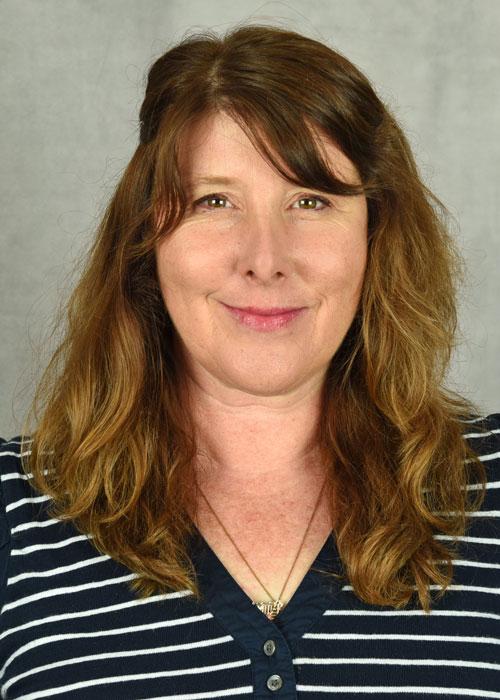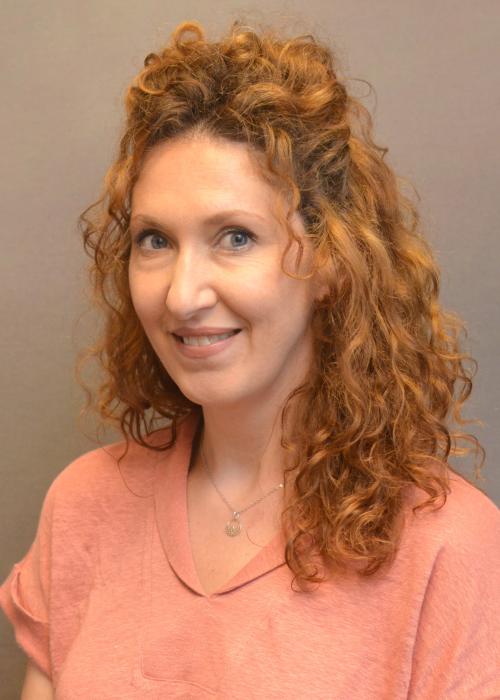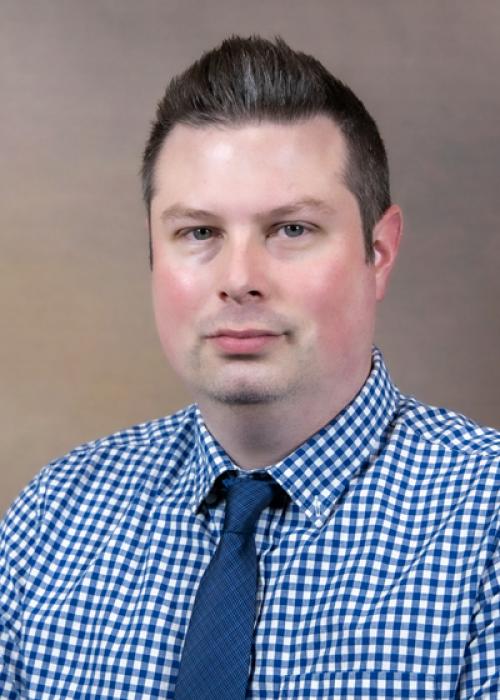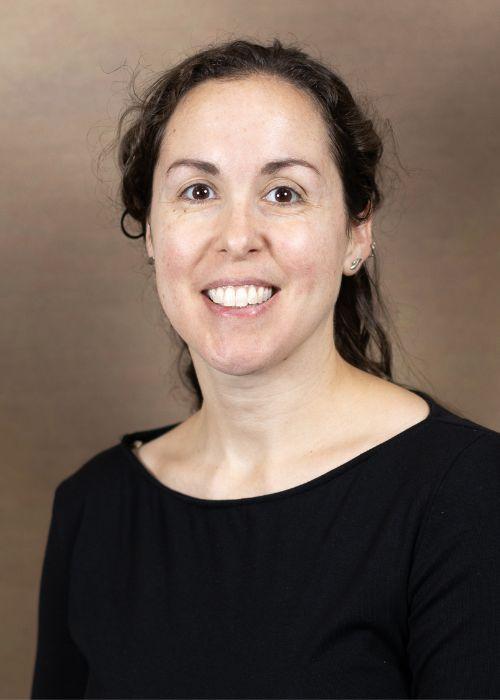Microbiology and Immunology
Shannon Murray

Kari Dugger

Education
| Year | University | Degree |
|---|---|---|
| 2018 | NIH National Cancer Institute (NCI), Mitchell Cancer Institute and UAB Departments of Radiology and Cancer Biology | CURE Research Fellow |
| 2010 | University of Alabama at Birmingham (UAB) Department of Physiology and Biophysics | Postdoctoral Fellowship |
| 2010 | University of Alabama at Birmingham (UAB), Nutrition Obesity Research Center (NORC) | Lung Biology Training fellowship |
| 2009 | University of Alabama at Birmingham (UAB), Department of Immunology | Immunology Training fellowship |
| 2007 | University of Alabama at Birmingham (UAB), Department of Microbiology/Immunology | Ph.D. |
| 2001 | Centre College, Danville, KY, Bachelor’s in chemical sciences | B.S. |
Research Interests
My research interests focus on the mechanism in which exercise and/or chronic depression changes the immune function in context of asthma and cancer immunity. I am pursuing projects that have branched from initial findings in my lab: exercise (physical stressor) communicates with immune cells by the activation of the sympathetic autonomic nervous system (SNS). All immune cells express adrenergic receptors and can, therefore, respond to sympathetic nervous system (SNS) stimulation. Further, chronic mild depression (psychological stressor) has the capacity to affect adrenergic signaling resulting in its dysfunction of immune cells. Both stressors (physical and psychological) have been shown to affect cancer risk and/or progression (positively and negatively, respectively) although mechanisms of action remain unclear. Further, it will be important to define how these lifestyle factors may impact the newer generations of cancer immunotherapies.
Activities
- Member, Association of Professors of Human and Medical Genetics (APHMG)
- Member, Association of Medical School Microbiology and Immunology Chairs (AMSMIC)
- Member, America Society of Microbiology (ASM)
- Member, Infectious Diseases Society of America (IDSA)
- Member, ASCB – American Society for Cell Biology – STEM Education Research
- Member, SACNAS – Society for Advancement of Chicanos/Hispanics and Native Americans in Science
CD47-mimicking phage-peptide constructs for anti-cancer vaccinations
Experimental evolution of SARS-CoV-2 as a new tool to identify adaptive changes in the viral genomes with implications for replication, infectivity, and COVID-19 outbreaks
Rapid Detection of Urinary Tract Infections Using Magnetostrictive Particle Biosensor Technology
Next-gen vector-borne disease surveillance across VCOM subtropical and tropical sites
Interrogation of T cell regulation by CBL family ubiquitin ligases to identify novel immunotherapy strategies
Stephen DiGiuseppe

Education
| Year | University | Degree |
|---|---|---|
| 2020 | Northwestern University - Feinberg School of Medicine | NRSA Postdoctoral Fellow |
| 2017 | Louisiana State University Health Sciences Center | Ph.D. Microbiology & Immunology - Minor: Biochemistry |
| 2009 | California Polytechnic University | B.Sc. Microbiology - Minor: English |
Research Interests
My lab focuses on two areas of research: 1) understanding how viruses co-opt ribosomal proteins to promote viral protein synthesis; and 2) understanding how viruses subvert the innate immune response to promote viral replication. I say “viruses” because my projects have evolved to include several virus families. If you are interested in any specific projects, please contact me to discuss. I am open to any new collaborations if you are interested in studying viruses, especially in a new context. If you are a student interested in virus research, reach out to me to discuss possible research opportunities.
Research Support
2024 – 2025 FY25 One Health Program (Co-PI)
2024 – 2026 2024 AOA OMM Observational & Explorative Focused Hypotheses Research Studies (PI)
2024 – 2027 NIH Research Enhancement Award (R15) in Oncological Sciences (Co-I)
2023 – 2024 FY24 Research Eureka Accelerator Program (REAP) (Co-PI)
2022 – 2023 FY23 Research Eureka Accelerator Program (REAP) (Co-PI)
2022 – 2023 Delta Collaborative Research Project (Delta-CRP) (Co-PI)
2022 – 2024 LSUHS NIH NIGMS COBRE Pilot Project Recipient (PI)
2021 – 2022 FY22 Research Eureka Accelerator Program (REAP) (PI)
2019 – 2021 NIH Extramural Loan Repayment Program for Pediatric Research (PI)
Awards
- 2025 Researcher of the Year (VCOM)
- 2024 Faculty of the Block (VCOM)
- 2021 Faculty of the Block (VCOM)
Activities
- Contributing Member of American Society of Microbiology (ASM)
- Contributing Member of ASM South Central Branch (SCB)
- Contributing Member of American Society of Virology (ASV)
- Ad hoc grant review panelist for Research Eureka Accelerator Program (VCOM)
- Faculty Senate Secretary (VCOM)
- Ad hoc committee member for Promotion and Review Board (VCOM)
- Ad hoc committee member for Student Researcher of the Year (VCOM)
- Ad hoc reviewer for Microbiology Spectrum (ASM), mBio (ASM), Cureus (Springer Nature)
Rebekah Morrow

Research Interests
Our lab’s research interests center around injury and repair mechanisms critical to pulmonary endothelial cell function. Major areas of focus include pulmonary arterial hypertension (PAH), acute respiratory distress syndrome, and acute lung injury. Continuing my previous experience in graduate school with pulmonary endothelial cells and my focus on immune responses/inflammation, we have begun to study molecular mechanisms that contribute to PAH, such as the Endothelial-to-Mesenchymal transition (EndMT). In a second project, we are focusing on endothelial cell injury and disease propagation where we employ Pseudomonas aeruginosa, a leading cause of nosocomial pneumonia, to uncover cell damage and repair mechanisms in acute lung injury. In our lab, we routinely use mammalian and bacterial culture, microscopy, western blot, RT-PCR, ELISA, colony formation, migration, and invasion assays. We are actively looking to recruit students into the lab, and the majority of our work will be conducted in the University of Louisiana Monroe School of Pharmacy.
